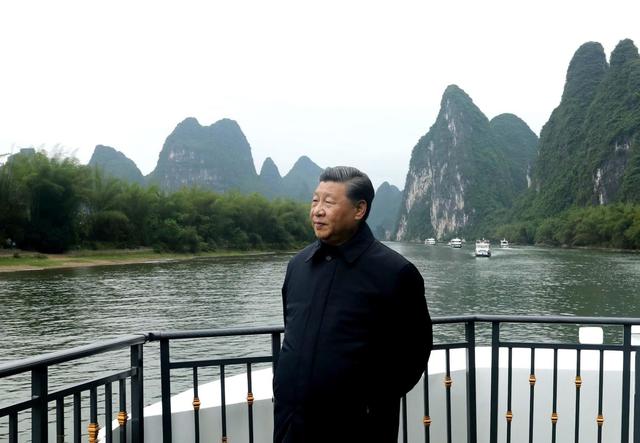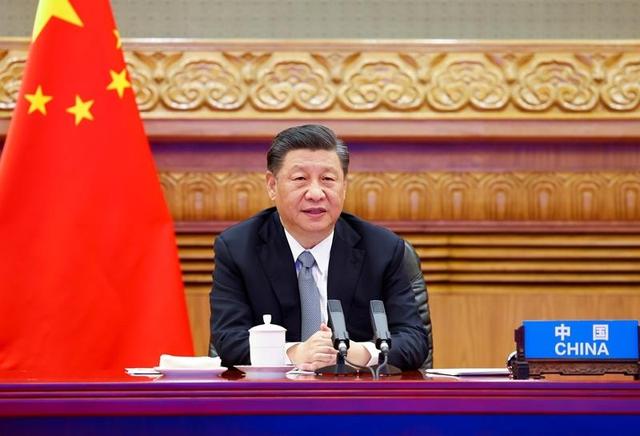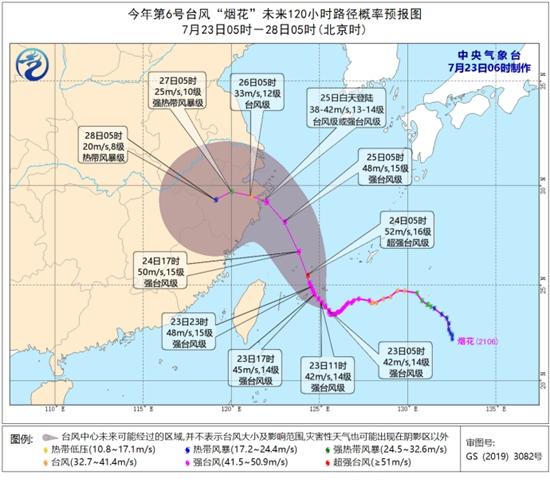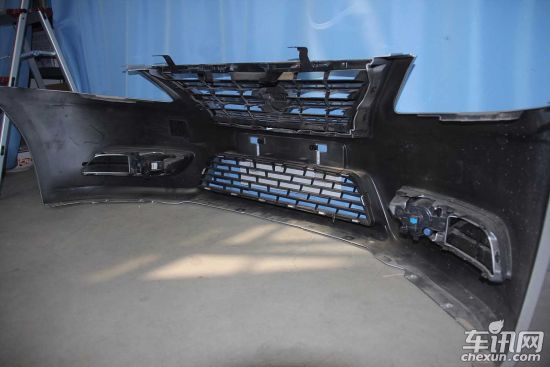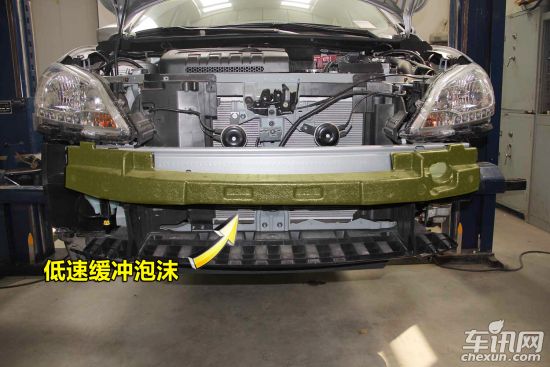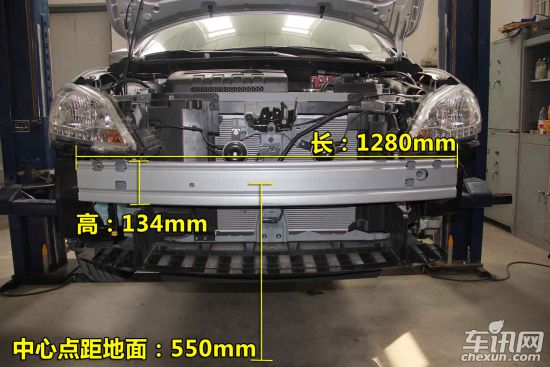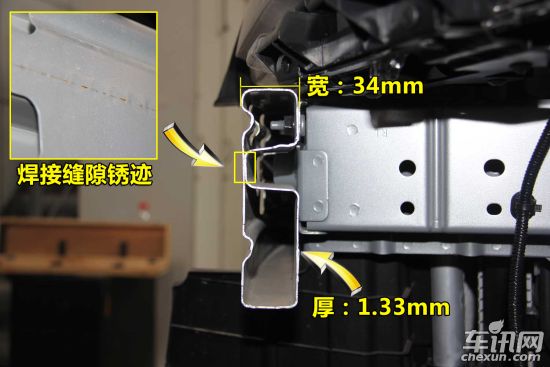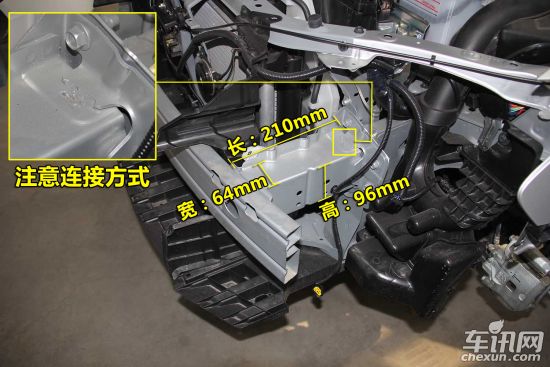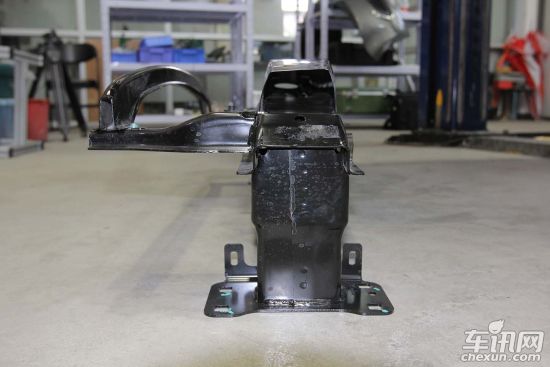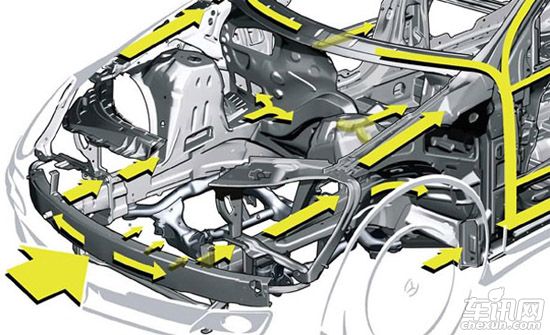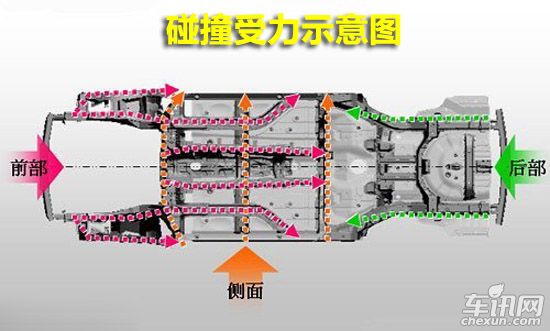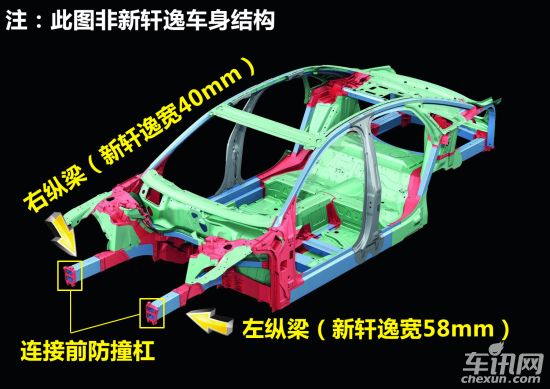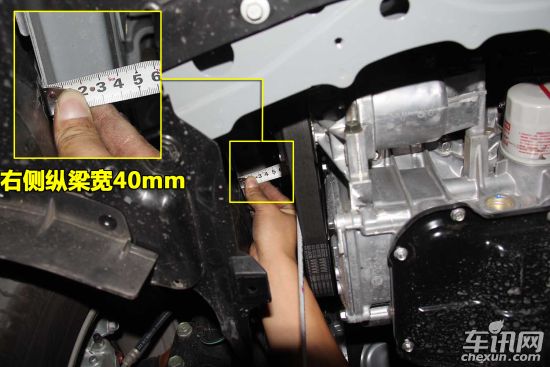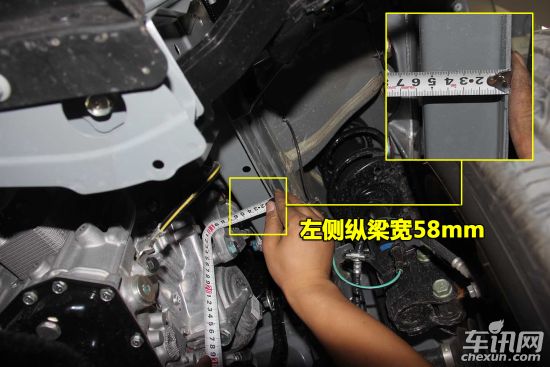Description of Danzhou City’s Construction Land Supply Plan in 2023
Danzhou natural resource he planning bureau
two〇March 2003
First, the preparation of general rulesone
(A) the guiding ideologyone
(2) Principles and basis for compilationone
(3) Related conceptsthree
(four) the scope of application and planning periodfour
Second, the regional overviewfour
(1) Geographical locationfour
(2) Administrative divisionsfive
(3) Natural conditionsfive
(4) Population conditionseight
(5) Social and economic conditionsnine
Iii. Implementation of the Plan for the Last Yearnine
Four, this year’s planning process11
(A) the preparatory stage11
(2) Investigation and analysis stage11
(III) Draft plan formulation stage11
(4) stage of soliciting opinionstwelve
(five) the stage of approval and publicationtwelve
Five, the technical route and method of this year’s plantwelve
(1) Technical routetwelve
(2) Working methods13
VI. Process and basis of determining indicators14
(A) Analysis of the supply capacity of state-owned construction land14
(B) State-owned construction land demand forecast analysis14
Seven, planning results35
(A) the total supply of construction land35
(B) Construction land supply structure35
(3) Layout of construction land supply36
(D) Construction land supply mode36
(A) the guiding ideology
Guided by the supreme leader’s ecological civilization thought, we will fully implement the decision-making arrangements of the 19th National Congress of the Communist Party of China, the Second Plenary Session of the 19th Central Committee, and provinces and cities, so as to speed up the transformation of land use mode as the main line and rationally arrange the whole city.2023The total amount, structure, layout, timing and mode of the annual supply of state-owned construction land, give full play to the role of land resources in the stage of high-quality development, closely focus on ensuring the high-quality use of land, ensuring the implementation of land space planning, and ensuring economic and social development, and effectively focus on urban development priorities such as the construction of free trade ports, the central city in the west, and the construction of a new bay around the city. Focus on strengthening the supply and management of real estate land, ensuring the effective supply of ordinary commercial housing, ensuring that the land for affordable housing should be fully guaranteed, strengthening the supply guarantee of industrial land, promoting the market-oriented allocation of industrial land, providing more accurate land element guarantee for Danzhou’s high-quality development, and laying the foundation for realizing the 14 th Five-Year Plan.
(2) Principles and basis for compilation
1.Compilation principle
(one) the principle of urban and rural planning
Give full play to the role of land in macro-control, promote the optimization and upgrading of industrial structure through the adjustment of land use structure, give full play to the radiation and driving role of cities in rural development, establish a long-term mechanism to promote the integration, coordination and sustainable development of urban and rural areas.
(2) the principle of economical and intensive land use
Further establish and improve the system of economical and intensive land use, take land use control as the core, promote the work of "linking increase with deposit", strictly control the supply of incremental land, make full use of existing stock land, further promote the transformation of land use mode from extension expansion to connotation tapping potential, from extensive and inefficient to intensive and efficient, and control the disorderly expansion of urban construction. Strictly control the scale of various construction land, continuously improve the level of economical and intensive land use, and contribute to building a resource-saving and environment-friendly society.
(three) principle of balance between supply and demand
In the case of fully analyzing the supply potential of state-owned construction land, comprehensively considering the level of economic and social development, capital investment capacity and land demand of various departments, rationally allocate the land supply structure and supply, and form a pattern in which land supply adapts to market demand.
(four) the principle of keeping pressure
Adhere to rational allocation and effective use of land. Establish a standardized real estate market order to promote the sustained, stable and healthy development of the real estate market; In strict accordance with the national Catalogue of Prohibited Land Use Projects and Catalogue of Restricted Land Use Projects, the principle of "keeping land supply under pressure" is emphasized, and land for industrial projects with high energy consumption, high material consumption, high pollution and low added value is strictly prohibited, so as to promote the adjustment of industrial structure and the transformation of economic growth mode.
2.basis of compilation
1.laws and regulations
(one) Land Management Law of the People’s Republic of China (2019Revised in);
(2) Regulations of the People’s Republic of China on the Implementation of Land Management Law (2021Revised in);
(three) People’s Republic of China (PRC) City Real Estate Management Law (2019Revised in);
(fourPeople’s Republic of China (PRC) Urban and Rural Planning Law (2019Revised in);
(five) Regulations on Land Management of Hainan Special Economic Zone (2018Revised in).
2.Relevant codes and standards
(one) The Ministry of Land and Resources on Printing and Distributing<Specification for preparation of supply plan for state-owned construction land>(Trial) Notice (Land and Resources Development [2010〕117No.);
(2) Opinions of Hainan Provincial People’s Government on Further Deepening the "Two Suspension" Policy to Promote the Stable and Healthy Development of the Real Estate Industry (Qiong Fu [2017〕76No.);
(threeOpinions of Hainan Provincial People’s Government on Further Strengthening Macro-control of Land and Improving Land Use Efficiency(Qiongfu [2018〕threenumber);
(four) "About printing and distributing<Control Index of Construction Land Transfer in Hainan Province>(try out)Notice "(Joan’s land and resources regulations [2018〕sevennumber);
(five) "Guiding Opinions on Implementing Industrial Project Development and Land Access Agreement"(Joan’s land and resources regulations [2018〕eightnumber);
(six) "Hainan Provincial Development and Reform Commission on Printing and Distributing<Catalogue of Prohibited Restrictions on Industrial Access in Hainan Province (2019Edition)>Notice of "(Joan hair change industry [2019〕1043No.);
(seven) Opinions of Hainan Provincial People’s Government on Supporting Industrial Project Development Planning and Land Security (Qiongfu [2021〕forty-fourNumber).
3.Planning and national economy information.
(one) Danzhou city master plan (space class2015—2030);
(2) Regulatory detailed planning of Danzhou city;
(threeStatistical Bulletin of Danzhou’s National Economic and Social Development.
(3) Related concepts
Danzhou city2023The supply plan of state-owned construction land in refers to the scientific arrangement made by Danzhou Municipal People’s Government on the total amount, structure, layout, timing and mode of all state-owned construction land supplied during the planning period.
Among them:
The total supply of state-owned construction land refers to the total scale of all kinds of state-owned construction land supply during the planning period.
The supply structure of state-owned construction land refers to the supply scale and proportional relationship of various state-owned construction land such as commercial service land, industrial and mining storage land, residential land, public management and public service land, special land, water area and water conservancy facilities land, transportation land and so on during the planning period.
The layout of state-owned construction land supply refers to the spatial distribution of state-owned construction land supply during the planning period.
The time sequence of state-owned construction land supply refers to the arrangement of state-owned construction land supply in different time periods during the planning period.
The supply methods of state-owned construction land include allocation, transfer, lease, investment at a fixed price or shareholding.
(four) the scope of application and planning period
1.area of application
This plan is applicable to all state-owned construction land planned to be supplied within the administrative area of Danzhou City, including Yangpu Economic Development Zone.
2.Planning period
The duration of this plan is one year, which is2023yearonemoononeSolstice2023yeartwelvemoon31Day.
Second, the regional overview
(1) Geographical location
Danzhou is located in the northwest of Hainan Island. There are Chinese Academy of Tropical Agricultural Sciences and South China University of Tropical Agriculture with strong scientific and technological strength. It is the economic and cultural center and transportation hub in the western part of Hainan Province, and it is a national spark technology-intensive area. Danzhou is adjacent to Lingao County, Chengmai County and Qiongzhong Li and Miao Autonomous Region in the east, Baisha Li Autonomous County and Changjiang Li Autonomous County in the southwest, Beibu Gulf in the northwest and across the sea from Vietnam. Land and sea transportation is developed in the territory, and the West Line Expressway, Haiyu West Line Highway and Hainan West Ring Railway run through the city. Danzhou City is far from Haikou, the provincial capital.129Kilometers, from Yangpu Port60Kilometers, shipping can reach Southeast Asia and coastal cities of the motherland directly. The city is long from east to west.87Kilometers, north-south width82Kilometers, area3258Square kilometers, it is the largest city in Hainan Province.

(2) Administrative divisions
Danzhou city co-governs.oneA development zone (Yangpu Economic Development Zone),16Towns (Nada Town, Baimajing Town, Zhonghe Town, Paipu Town, Mutang Town, Eman Town, Guangcun Town, Haitou Town, Heqing Town, Lanyang Town, Nanfeng Town, Yaxing Town, Dacheng Town, East Cheng Zhen Town, Wang Wu Town and Xinzhou Town),fourA state-owned farm (State-owned Bayi Farm, State-owned Western Union Farm, State-owned Lanyang Farm and State-owned Xipei Farm), the municipal government is located in Zhongxing Street in that big town.oneNumber.
(3) Natural conditions
1.Geomorphological conditions
The terrain of Danzhou City inclines from southeast to northwest, with an average elevation.105Rice. The city’s topography consists of three parts: coastal plain, terrace platform and mountainous hills. The northwest is mainly basalt and Quaternary marine sedimentary plain and river alluvial plain, accounting for the total area.28%; The central part is terrace and volcanic lava platform, accounting for the total area51%; The southeast is mountainous and hilly, accounting for the total area.21%. There are many small mountains in the territory, mostly distributed in the southeast, and Shamaoling is above sea level.752Rice is the highest point in China.
2.Climatic condition
Danzhou is a tropical monsoon maritime climate zone, with no heat in summer and no cold in winter. Sunny, mild climate, average annual temperature.23.2 ℃.oneMonthly average temperature16.9℃The extreme maximum temperature is40.0℃. Rainfall is abundant but unevenly distributed, with less rainfall in winter and spring and more rainfall in summer and autumn, with an average annual rainfall.1815Millimeter,fiveMoon solstice10Month is rainy season,11Month to next yearfourJune is the dry season. Affected by tropical storms and typhoons, the county is light, and strong typhoons average everyfourOnce in a year
3.Hydrological conditions
Danzhou City is rich in water resources, with large and small rivers.36Article, large, medium and small reservoirs33Among them, Nandu River, Zhubijiang River and Wenlan River originated from abroad, and Beimen River, Chunjiang River, Guangcun River, Dajiang River and Shanji River originated from China.fiveArticle. Songtao Reservoir is one of the top ten reservoirs in China, the largest reservoir in the province and an important resource for agricultural irrigation.
4.Natural resource conditions
Danzhou city is rich in mineral resources, and lignite, oil shale and barite have been proved to be of development value.10The rest are gold, silver, iron, lead, zinc, tungsten, tantalum, niobium and petroleum.10A variety of metal mines. The protection of ecological resources in Danzhou City is extremely complete, and the forest coverage rate reaches.48%, tree species resources rank first in the province, and cherishing tree species resources is second to none. Hainan Tropical Botanical Garden alone has preserved thousands of precious tree species, including plum, mother, agarwood, pear, jackfruit, litchi, longan, melia azedarach and other precious trees. There are many kinds of medicinal plants, including the world-famous anticancer plants Cephalotaxus hainanensis and Maydenwood, as well as the well-known boat-fruited sterculia, nux vomica and agarwood. Wild animals are rich in resources and precious in species, including gibbons, leopards, bears and water deer., Huang Wei,penetrateShanjia, scarab, parrot, duck, pheasant, partridge, etc.
Danzhou is rich in marine resources and has a long coastline.298Kilometers, there are many harbors, mainly Houshuiwan, Danzhou Bay and Yangpu Port. Due to its proximity to the Beibu Gulf, the fishing ground is vast, and there are many kinds of marine fish, such as mackerel, red fish, pomfret, squid, cuttlefish, eel, grouper, sea cucumber, prawn, hairtail, crab, white butterfly and pearl oyster. Danzhou is one of the "Top 100 Agricultural Cities in China" with a vast territory, fertile soil and criss-crossing canals. Rich in rubber, sugar cane, pepper, melons and vegetables, coffee, citronella and southern medicine.Tropical cash crops are also rich in mango, longan, litchi, pineapple, banana, coconut and other tropical famous fruits, among which the planting area of rubber and sugarcane ranks among the best in the province.
Danzhou City, located in the northern section of the industrial corridor in the west of Hainan, is the industrial center in the northwest of Hainan. Its economic development is in a tripartite confrontation with Haikou and Sanya, forming an industrial system with sugar, rubber products, furniture, building materials, cement, steel light industry, agricultural products processing and aquatic products processing as the main body.
Danzhou is rich in tourism resources, and it is the city and county with the largest variety of tourism resources in western Hainan, withtwentyA number of tourist attractions, both beautiful natural scenery, but also unique cultural landscape. Natural scenery includes Lanyang National Forest Park, Hainan Tropical Botanical Garden in Tropical Plant Kingdom, Songtao Reservoir in Treasure Island and Yunyue Lake in Fairy Dressing.70Thousands of meters of high-quality seaside beaches-Haitou and Paipu Golden Beach and Guangcun Silver Beach, the "Egret Paradise" suspected of entering the fairyland, and the "Dragon Gate Surge" which makes people feel excited, include the famous Lanyang Hot Spring, the Lumuwan Waterfall, the magical Shentou and Yingdao Rock Flower Water Cave, as well as Guanyin Cave and Juntun Huaguo Mountain. In addition, Danzhou still has a long history, splendid culture, simple folk customs and ancient customs.11The ancient cultural city of Korea. Dongpo Academy, a national key cultural relic protection unit located in Zhonghe Ancient Town, has Tiannan Scenic Spot, Danzhou Ancient City, Fubo Ancient Temple, Baimajing Historic Site, Ningji Temple, Taolang Temple and Kuixing Tower.
(4) Population conditions
The total population of the city is871118People, from the perspective of household composition, have a total of family households.251357Household, collective household5950The population of households and families is841972People, collective household population is29146People, the average population of each household is3.35People.
In terms of gender ratio, among the total population of the city, the male population is466902Person, account for53.60%; The female population is404216Person, account for46.40%. Sex ratio of total population115.51%.
Judging from the age composition, among the total population of the city,0-14The age population is177395Person, account for20.36%;15-59The age population is556716Person, account for63.91%;60The population aged and above is137007Person, account for15.73%, in which:65The population aged and above is97777Person, account for11.22%.
In terms of education level, the population with university education (referring to junior college or above) is70810People; The population with high school (including technical secondary school) education is109034People; The population with junior high school education is326877People; The population with primary school education is226856People.
From the perspective of urban and rural population, the population living in cities and towns is452158Person, account for51.91%; The population living in the countryside is418960Person, account for48.09%.
(5) Social and economic conditions
2022In, the city’s regional GDP878.91Billion yuan, calculated at constant prices, an increase over the previous year.122.32%. Among them, the added value of the primary industry154.69One hundred million yuan, an increase over the previous year.10.68%; Added value of secondary industry228.52100 million yuan, down from last year.611.46%; Added value of tertiary industry495.71100 million yuan, an increase over the previous year.121.85%. Tertiary industry proportionGDPThe specific gravity of is respectively17.6%、26%、56.4%. At the same time, on the whole, agricultural production rose slightly, industrial production made great strides, service industry developed at a high speed, investment in fixed assets maintained rapid growth, the consumer market recovered well, fiscal revenue increased steadily, and expenditure decreased.
Iii. Implementation of the Plan for the Last Year
according to2022Analysis of construction land supply ledger in,2022The city has a total supply of construction land615.0635Hectares, including commercial service land.26.1120Hectares, industrial and mining storage land47.0437Ha, residential land23.9107Hectares, public management and public service land61.6935Hectares, transportation land375.3252Hectares, waters and land for water conservancy facilities80.9784Hectares, special land0Ha.
Jing Yu2022Comparative analysis of the annual supply plan shows that the actual total supply of construction land in the whole year is more planned.652.3392Ha, decrease37.2757Ha. From the perspective of supply structure, the actual supply of commercial service land is more than planned.48.05Ha, decrease21.938Hectares; The actual supply of industrial and mining storage land is more planned197.8506Ha, decrease150.8069Hectares; The actual supply of residential land is more than planned29.2286Hectares,
decrease5.3179Hectares; The actual supply of land for public management and public service is planned.128.2615Ha, decrease66.568Hectares; The actual supply of transportation land is more planned194.7614Ha, increase180.5638Hectares; The actual supply of land for water areas and water conservancy facilities is more planned16.8511Ha, increase64.1273Hectares; The actual supply of special land is more planned37.336Ha, decrease37.336Hectares, as shown in the table below and below.
tableoneDanzhou city2022Table on Implementation of State-owned Construction Land Supply Plan in
Unit: hectares,
Planned supply
48.05
197.8506
29.2286
128.2615
194.7614
16.8511
37.336
652.3392
Actual supply
26.112
47.0437
23.9107
61.6935
375.3252
80.9784
0
615.0635
supply
-21.938
-150.8069
-5.3179
-66.568
180.5638
64.1273
-37.336
-37.2757
differential value
Plan implementation rate
54.34%
23.78%
81.81%
48.10%
192.71%
480.55%
0.00%
94.29%

pictureoneDanzhou city2022Figure on the implementation of state-owned construction land supply plan in.
Four, this year’s planning process
(A) the preparatory stage
Hold a work deployment meeting, organize land use, planning, reserve center, farmland protection and other departments, form a special work class, be fully responsible for the preparation of the state-owned construction land supply plan in our city, clarify the division of responsibilities, implement the work funds, and determine the technical unit for the preparation of this plan in an open way.
Release preparation2023Notice of the annual state-owned construction land supply plan. To the Municipal Development and Reform Commission, the Housing and Urban-Rural Development Bureau, the Municipal Transportation Bureau and other relevant departments, as well as the township governments and parks.2023Notice of the annual state-owned construction land supply plan. The contents include suggestions from relevant departments, township governments, parks, etc. on the supply plan of state-owned construction land in this area during the planning period, and the demand for state-owned construction land in this industry and field during the planning period.
Carry out basic data collection. Arrange personnel to go to various departments to collect relevant materials for supply planning, including but not limited to the master plan (space class)2015—2030) data, batch but not for data, reserve land data, etc.
(2) Investigation and analysis stage
According to the relevant information collected, the investigation and analysis work is carried out, mainly including supply potential analysis and construction land demand analysis. Among them, in the aspect of supply potential analysis, combined with the collected data of batch but not supply and land reserve, combined with the relevant planning situation to make a comprehensive determination. In terms of demand for construction land, combined with economic and social development and land use, according to different land types, the corresponding forecasting methods are selected for calculation.
(III) Draft plan formulation stage
According to the investigation and analysis stage, the supply potential and construction land demand determined are comprehensively determined.2023In the state-owned construction land supply plan indicators, and in accordance with the "State-owned construction land supply plan" (Trial) requirements, the preparation of the draft supply plan.
(4) stage of soliciting opinions
Submit the prepared draft supply plan to all relevant departments and units for comments, and improve the draft plan according to the feedback.
(five) the stage of approval and publication
After the preparation of the supply plan is completed, it will be announced as required after being approved by the Municipal People’s Government.
Five, the technical route and method of this year’s plan
(1) Technical route
Through the analysis of land approved but not supplied, idle land and government reserve land within the jurisdiction, the state-owned construction land that can be supplied during the planned period is comprehensively determined. At the same time, according to the investigation and analysis of the economic and social development, land use and real estate market in this area, the total demand and structure of state-owned construction land are predicted by scientific methods, and the demand for state-owned construction land is comprehensively determined in combination with the audit of the demand for state-owned construction land declared by relevant government departments at the same level, township people’s governments and industrial parks.
Combined with the amount of state-owned construction land that can be supplied and the demand of state-owned construction land in the planned period, the planned indicators of state-owned construction land supply are determined as a whole, and the planned indicators of state-owned construction land supply can be decomposed according to the administrative area, land use and supply mode. The specific technical route is shown in the following figure:

picture2Technical Route of State-owned Construction Land Supply Planning
(2) Working methods
1.Scientifically and rationally analyze the supply potential of state-owned construction land
When analyzing the supply potential of state-owned construction land, we should comprehensively consider the influence of land use status, planning, ownership status and expropriation on land supply, focus on the land use status and overall planning data, and analyze the potential of land that has not been supplied, government reserve land and idle land according to the planning implementation status, so as to determine the source and scale of potential supply of state-owned construction land during the planning period.
2.Scientifically predict the demand for state-owned construction land
When forecasting the demand for state-owned construction land, it should be carried out on the basis of full investigation and analysis of the economic and social development, land use and real estate market in this area, focusing on the changing trend of construction land supply in previous years, and selecting a realistic forecasting method to forecast the demand for state-owned construction land. According to the requirements of "Standard for the Planning of State-owned Construction Land Supply" (for Trial Implementation), the index prediction methods include trend prediction method, linear regression method, exponential smoothing method, land quota index method and grey model method.
3.Comprehensive balance to determine the scale of planned supply indicators
In the final determination of the supply index scale, it is necessary to comprehensively consider the supply potential of state-owned construction land, the predicted demand of state-owned construction land and the demand of state-owned construction land reported by various departments and units, proceed from the demand and actual supply capacity, comprehensively balance and make overall arrangements to determine the final supply index scale.
VI. Process and basis of determining indicators
(A) Analysis of the supply capacity of construction land
Combined with the actual situation of our city, the potential sources of state-owned construction land mainly include land approved but not supplied by our city, idle land and government reserve land. After inquiring about the dynamic monitoring and supervision system of land use, the existing land area of our city is256.5291Ha, idle land area is80.5624Ha. At the same time, the reserve area of our municipal government is3157.73Ha.
(2) Forecast and analysis of construction land demand
1.Forecast content
The demand forecast of state-owned construction land mainly includes the total demand forecast of state-owned construction land and various types of state-owned construction land such as commercial service land, industrial and mining storage land, residential land, public management and public service land, transportation land, water area and water conservancy facilities land and special land during the planning period.
2.Predictive thinking
Based on the investigation and analysis of Danzhou’s economic and social development, land use and real estate market, according to different land types, the corresponding forecasting methods are selected to scientifically predict the total demand and structure of state-owned construction land; At the same time, the demand for state-owned construction land is comprehensively determined in combination with the review of the demand for state-owned construction land declared by relevant departments and units.
3.prediction technique
The forecasting methods of state-owned construction land demand generally include trend forecasting method, linear regression method, exponential smoothing method, land quota index method and grey model method.
(oneTrend prediction method: according to the historical data of existing land supply, a curve is fitted to reflect the changing trend of total land supply, and then the land demand in the planned period is estimated according to this trend curve.
Trend prediction method, also known as trend curve analysis, curve fitting or curve regression, is the most studied and popular quantitative prediction method so far. It is to fit a curve according to the known historical data, so that this curve can reflect the growth trend of the load itself, and then according to this growth trend curve, the load forecast value at that moment is estimated for a certain point in the future.
Commonly used trend models include linear trend model, polynomial trend model, linear trend model, logarithmic trend model, power function trend model, exponential trend model and logistic model.(logistic)Model, Gong Botz (gompertz) model, etc., the process of seeking trend model is relatively simple, and this method itself is a definite external heap, processing historical data. The process of fitting curve and obtaining simulated curve does not consider random error. In principle, the accuracy of the curve fitted by trend analysis is consistent for the whole fitting interval. In many cases, choosing a suitable trend curve can really give a better prediction result. However, the results given by different models will vary greatly, and the key to use is to choose the appropriate model according to the regional development.
①Linear trend model
Linear trend prediction method, also known as "linear trend prediction method", is a prediction method used when the time series data in the observation period are close to a straight line and show an approximate straight line rise and fall. The first key is to get the trend straight line, so as to get the predicted value by using the extension of the trend straight line. The equation for finding the trend straight line is:
Yt=a+bt
Formula:t——The independent variable is any selected.tvalue;
Yt——Dependent variable, for the selectedtValue, corresponding variableYThe average estimated value of, that is, the firsttForecast value of forecast period;
a、b——Unknown parameter.
The steps of linear trend prediction method are as follows:
A.Drawing with known data to determine the straight line trend.
B.Find the straight line of changing trend. You can use the intuitive method or the least square method.
C.Using the extension of the changing trend straight line, the predicted value is determined.
②Polynomial trend model
Polynomial curve trend prediction method is a form of curve trend, which uses polynomial equation to match the real curve trend of time series data to predict the future.
The equation for finding the trend straight line is:
Yt=b0+b1t+b2t2+…+bktk
Formula:t——The independent variable is any selected.tvalue
Yt——Dependent variable, for the selectedtValue, corresponding variableYThe average estimated value of, that is, the firsttThe predicted value of the prediction period;
b0、b1、b2、bk——Unknown parameter
The steps of polynomial trend prediction method are as follows:
A.Drawing with known data to determine the straight line trend.
B.Find the changing trend curve. You can use the intuitive method or the least square method.
C.Using the extension of the changing trend straight line, the predicted value is determined.
(2) linear regression method:According to the principle of mathematical statistics, a large number of experimental statistical data are analyzed and processed, and the variables with linear relationship with land supply are found, then the functional relationship between them is established, and finally the land demand is predicted according to the change of independent variables.
①Univariate linear regression model
Is based on independent variablesxAnd dependent variableYThe relationship between, establishxandYBased on the linear regression equation. Because market phenomena are generally influenced by many factors, not just one. Therefore, the application of one-dimensional linear regression analysis and prediction method must make a comprehensive analysis of various factors affecting market phenomena. Only when there is a variable among many influencing factors that has a significantly higher influence on the dependent variable than other factors can we use it as an independent variable and apply the market forecasting method of univariate correlation regression analysis to forecast.
The prediction model of unary linear regression analysis method is:
Yt=a+bxt
Where:xt——tThe value of the independent variable;
Yt——tThe value of the dependent variable;
a、b——Parameters of linear regression equation with one variable.
②Multiple linear regression model
When the change of the dependent variable is influenced by several important factors, it is necessary to use two or more influencing factors as independent variables to explain the change of the dependent variable. This is multiple regression, also known as multiple regression. When there is a linear relationship between multiple independent variables and dependent variables, the regression analysis is multivariate linear regression.
The prediction model of multiple linear regression analysis is:
![]()
In the formula,b0Is a constant term,bone、b2、bthree…bkIs the regression coefficient,boneforx2、xthree、xfour…xkWhen fixed,xoneFor each additional unit pairyThe effect of, namelyxonerightyPartial regression coefficient of; in like manner; in a similar wayb2forxone,xkWhen fixed,x2For each additional unit pairyThe effect of, namelyx2rightyPartial regression coefficient of.If two independent variablesxone,x2The same dependent variableyWhen there is a linear correlation, the binary linear regression model can be described as:y=b0+bonexone+b2x2+e.
When establishing a multivariate regression model, in order to ensure that the regression model has excellent explanatory power and prediction effect, we should first pay attention to the selection of independent variables, and its criteria are:
A.The independent variable must have a significant influence on the dependent variable and show a close linear correlation;
B.The linear correlation between independent variables and dependent variables must be true, not formal;
C.Independent variables should be mutually exclusive, that is, the degree of correlation between independent variables should not be higher than that between independent variables and dependent variables;
D.Independent variables should have complete statistical data, and their predicted values are easy to determine.
At the same time, when multiple linear regression analysis is adopted, the model should be tested and evaluated.
A.Determination of fitting degree
Multiple determinable coefficients in multivariate linear regressionr2It is the change explained by the regression equation in the total change of the dependent variable.(Regression sum of squares)The proportion,R2The greater the regression, the stronger the fitting degree of each regression party to the sample data points, and the closer the relationship between all independent variables and dependent variables. The calculation formula is:

among

B.standard error of estimate
Estimation standard error, that is, dependent variable.yThe standard error between the actual value of and the estimated value obtained by the regression equation, the smaller the estimated standard error, the better the fitting degree of the regression equation, and the calculation formula is:

Among them,kIs the number of independent variables in the multivariate linear regression equation.
C.Significance test of regression equation
The significance test of regression equation is to test the significance of the whole regression equation, or to evaluate whether the linear relationship between all independent variables and dependent variables is close. Usually usedFInspection,FThe calculation formula of statistics is:

According to a given significance levela,freedom(k,n-k-1)checkFDistribution table, get the corresponding critical value.Fa, ifF>FaThen the regression equation is significant and the regression effect is significant;F<Fa, the regression equation is not significant and the regression effect is not significant.
D.Significance test of regression coefficient
The significance test of regression coefficients is to test whether each regression coefficient in the regression model is significant, so that only those factors that have significant influence on the dependent variables are retained in the model. When testing, calculate statistics first.ti; Then according to the given significance levela,freedomn-k-1checktDistribution table, critical value oftaorta/2,t>t−aorta/2, the regression coefficientbiand0There is a significant difference, on the contrary, it is related to0There is no significant difference. StatistictThe calculation formula of is:

amongCijIs the inverse matrix of solving regression coefficient matrix in multivariate linear regression equation.(x’x)The first on the main diagonal of.jElements.
E.Multiple collinearity discrimination
If the regression coefficienttThe test fails, which may be caused by the fact that the independent variable corresponding to this coefficient is not significant to the shadow level of the dependent variable. At this time, this independent variable should be eliminated from the regression model, and a simpler regression model should be established or the independent variable should be replaced. It may also be caused by collinearity between independent variables, so we should try to reduce the influence of collinearity at this time.
Multicollinearity means that there is a strong linear relationship between independent variables in the multivariate linear regression equation. If this relationship exceeds the linear relationship between dependent variables and independent variables, the stability of the regression model will be destroyed and the estimation of regression coefficients will be inaccurate. It should be pointed out that in the multiple regression model, multicollinearity is inevitable, as long as multicollinearity is not too serious. Judging whether there is severe multicollinearity in multivariate linear regression equation, the determinable coefficient between every two independent variables can be calculated separately.r, ifr2>R2Or close toR2, we should try to reduce the influence of multilinear. The conditional number of eigenvalue of correlation coefficient matrix between independent variables can also be calculated.k=λ1/λp(λ1Is the largest eigenvalue,λpIs the minimum eigenvalue.),k<100, there is no multi-focus collinearity; if100≤k≤1000, there is a strong multicollinearity between independent variables, ifk>1000There is serious multicollinearity between independent variables. The way to reduce multicollinearity is mainly to change the value of independent variables, such as changing absolute numbers into relative numbers orAverage, or replace other independent variables.
F.D.Wtest
When the regression model is based on dynamic data, the error termeIt is also a time series. If the items of the error series are independent of each other, there is no correlation between the items of the error series. If there is a close correlation between the error series, the established regression model cannot express the real change relationship between the independent variables and the dependent variables.D.WTest is the autocorrelation test of error sequence.
(three) exponential smoothing method:The smoothing coefficient is used to correct and smooth the statistical data reflecting the historical changes of variables, so as to analyze the evolution trend of variables and predict the land demand in the planned period. This method gives different weights to the past data. Generally speaking, the closer data has less influence on the future, while the farther data has greater influence on the future, so the closer data has greater weight, while the farther data has less weight. If the time series data points of land supply show a linear trend, the linear or quadratic exponential smoothing method can be used to predict.:If the data points show a nonlinear trend, the cubic exponential smoothing method is used to predict.
Exponential smoothing method is put forward by Brown, who thinks that the situation of time series is stable or regular, so time series can be reasonably postponed. He thinks that the recent past situation will continue in the future to some extent, so he puts greater weight on the recent information.
Exponential smoothing method is a time series analysis and prediction method developed on the basis of moving average method. It predicts the future of the phenomenon by calculating the exponential smoothing value and cooperating with a certain time series prediction model. The principle is that the exponential smoothing value of any period is the weighted average of the actual observation value of this period and the exponential smoothing value of the previous period. According to different smoothing times, exponential smoothing methods can be divided into primary exponential smoothing method, secondary exponential smoothing method and tertiary exponential smoothing method.
The basic formula of exponential smoothing method is:S=a*yt+(1-a)St-1In the formula,
S——timetSmooth value of;
yt——timetActual value of;
St-1——timet-1Actual value of;
a——Smoothing constant, its value range is[0,1];
Initial value determination:
According to the formula:Sone=a*yone+(1-a)S0, when you want to use exponential smoothing method to start collecting data, it does not exist.y0. Unable to produceS0Naturally, it cannot be found by exponential smoothing formula.Sone, defined by exponential smoothing methodSoneIs the initial value. The determination of initial value is also an important condition of exponential smoothing process.
If we can find it,yonePrevious historical data, then, initial valueSoneThe determination of is not a problem. When the data is less, the whole period average and moving average method can be used.;When there are more data, the least square method can be used. But the exponential smoothing method itself cannot be used to determine the initial value, because the data will be exhausted.
If only fromyoneAt the beginning of the data, then the methods to determine the initial value are:
(one) takeSonebe equal toyone;
(2) After accumulating some data, takeSoneIs equal to the simple arithmetic average of the previous data, such as:Sone=(yone+y2+ythree)/3Wait a minute.
smoothing factoraDetermination of:
In the calculation of exponential smoothing method, the key isαThe value of the size, butαThe value of is easily influenced by subjective factors, so it is reasonably determined.αThe value method of is very important. Generally speaking, if the data fluctuates greatly,αThe value should be larger, which can increase the influence of recent data on the forecast results. If the data fluctuates smoothly,αThe value should be smaller. Theoretical circles generally believe that there are the following methods to choose from:
Empirical judgment method. This method mainly relies on the development trend of time series and the experience of forecasters to make judgments.
oneWhen the time series shows a stable horizontal trend, the smaller one should be selected.αValue, generally available in the0.05~0.20Value between;
2When the time series fluctuates, but the long-term trend changes little, you can choose a slightly larger one.αValue, often0.1~0.4Value between;
threeWhen the time series fluctuates greatly and the long-term trend changes greatly, showing an obvious and rapid upward or downward trend, it is appropriate to choose a larger one.αValue, as can be found in the0.6~0.8Choose values between them to make the prediction model more sensitive and keep up with the changes of data quickly;
fourWhen the time series data is an upward (or downward) trend type,αShould take a larger value, in0.6~oneBetween
Try algorithm. According to the specific time series, refer to the empirical judgment method to roughly determine the rated value range, and then take a few.αValue for trial calculation, the comparison is differentαValue of the prediction standard error, select the smallest prediction standard error.α.
(four) land quota index method:According to the project land quota or production scale land quota, the land demand is calculated according to the project or production scale.
(five) grey model method:Through grey relational analysis, land supply is closely related to GDP, total population, urban population, investment in fixed assets, per capita GDP, output value of secondary industry and output value of tertiary industry. Based on these factors, the grey system model method is used to establish grey.GM(one,one) model to forecast the demand of state-owned construction land in the planning period.GM(one,one) The essence of the model is to generate the original data in a cumulative way, so that the generated data series presents a certain law. The curves of each data series can be approximated by typical curves, and then the approximated curves are used as models. Finally, the predicted values of the model are reduced and reduced once to predict the system. according toCandPThe two indexes can comprehensively evaluate the accuracy of the prediction model. Specific indicators are shown in the following table.
table2Grey model prediction accuracy evaluation index table
good
>0.95
<0.35
qualified
>0.8
<0.40
barely
>0.7
<0.45
Unqualified /disqualification
≤0.7
≥0.45
4.Prediction process
(one) Forecast of the total supply of commercial service land
In recent years, the supply of commercial service land presents a nonlinear change.(The supply situation and trends over the years are detailed in the following table and figure below.)Therefore, exponential smoothing method and grey model method are selected for forecasting.
tablethreeTable of land supply for commercial service
Supply area (hectare)
14.626
6.5192
13.7793
129.2742
66.2202
18.6603
0
4.7472
19.0127
15.1677
26.112

picturethreeChange chart of supply trend of commercial service land
①exponential smoothing
According to the time series data points of land supply in Danzhou city over the years, the land supply presents a nonlinear trend, so quadratic exponential smoothing is used to predict the total supply. At the same time, considering that the number of items in the original series is small (less than15Item), initial valueS0Using the average of the first three periods, smoothing coefficientaAccording to the changing trend, choose0.6till/extremely0.8Between, this choice.0.7Forecast, smoothing results are as follows:
tablefourQuadratic exponential smoothing result table of commercial service land
Quadratic exponential smoothing
—
14.626
10.6537
11.8277
69.4822
73.0727
46.7338
21.4637
10.9983
13.9835
According to the above results, analyze and predict,2023Supply of commercial service land in Danzhou City in=(2*15.1962-13.9835)+(0.4/0.6)*(15.1962-13.9835)=17.2174Ha.
②Grey model method
Grey model method is used to establish grey.GM(1,1) model,GM(1,1) The essence of the model is to generate the original data in a cumulative way, so that the generated data series presents a certain law. The curves of each data series can be approximated by typical curves, and then the approximated curves are used as models. Finally, the predicted values of the model are reduced and reduced once to predict the system. According to the tablethreeThe data in the grey model is established, and the prediction model is obtained as followsx(t+1)=-528.808035exp(-0.085412t)+543.434035. After calculation,2023The total annual demand for commercial service land is18.4273Ha.
③Determination of supply
There is a certain gap between the supply of commercial service land predicted by exponential smoothing method and grey model method, so the supply is determined by weighted average method, and the weight of the prediction result by exponential smoothing method is0.3, the weight of grey model prediction results is0.7, so2023Annual supply of commercial service land in Danzhou, namely17.2174hektare×0.3+18.4273hektare×0.7=18.0643Ha.
(2) Forecast of total supply of industrial, mining and storage land
In recent years, the supply of industrial and mining storage land has shown a nonlinear change.(The supply situation and trends over the years are detailed in the following table and figure below.)Therefore, exponential smoothing method and grey model method are selected for forecasting.
tablefiveTable of supply of industrial, mining and storage land
Supply area (hectare)
97.9704
158.0389
9.5383
56.796
11.7448
2.2553
8.6667
5.39
8.0907
114.5278
47.0437

picturefourChange chart of supply trend of industrial and mining storage land
①exponential smoothing
According to the time series data points of land supply in Danzhou city over the years, the land supply presents a nonlinear trend, so quadratic exponential smoothing is used to predict the total supply. At the same time, considering that the number of items in the original series is small (less than15Item), initial valueS0Using the average of the first three periods, smoothing coefficientaAccording to the changing trend, choose0.6till/extremely0.8Between, this choice.0.7Forecast, smoothing results are as follows:
tablesixQuadratic exponential smoothing result table of industrial and mining storage land
Quadratic exponential smoothing
—
97.9704
127.404
72.2988
59.743
35.0938
16.7845
11.159
7.8259
7.6557
According to the above results, analyze and predict,2023Supply of commercial service land in Danzhou City in=(2*82.4443-7.6557)+(0.4/0.6)*(82.4443-7.6557)=207.0912Ha.
②Grey model method
Grey model method is used to establish grey.GM(1,1) model,GM(1,1) The essence of the model is to generate the original data in a cumulative way, so that the generated data series presents a certain law. The curves of each data series can be approximated by typical curves, and then the approximated curves are used as models. Finally, the predicted values of the model are reduced and reduced once to predict the system. According to the tablefiveThe data in the grey model is established, and the prediction model is obtained as followsx(t+1)=-488.478801exp(-0.167882t)+586.449201. After calculation,2023The total annual demand for industrial, mining and storage land is14.0865Ha.
③Determination of supply
There is a certain gap between the supply of commercial service land predicted by exponential smoothing method and grey model method, so the supply is determined by weighted average method, and the weight of the prediction result by exponential smoothing method is0.3, the weight of grey model prediction results is0.7, so2023Annual supply of commercial service land in Danzhou, namely207.0912hektare×0.3+14.0865hektare×0.7=71.9879Ha.
(three) Prediction of total supply of residential land
The supply of residential land has shown a nonlinear change in recent years.(The supply situation and trends over the years are detailed in the following table and figure below.)Therefore, exponential smoothing method and grey model method are selected for forecasting.
tablesevenTable of residential land supply
Supply area (hectare)
151.6230
84.7345
12.6994
172.4707
95.6235
21.6543
9.0995
18.8548
14.1311
41.08939
23.9107

picturefiveChange chart of residential land supply trend
①exponential smoothing
According to the time series data points of land supply in Danzhou city over the years, the land supply presents a nonlinear trend, so quadratic exponential smoothing is used to predict the total supply. At the same time, considering that the number of items in the original series is small (less than15Item), initial valueS0Using the average of the first three periods, smoothing coefficientaAccording to the changing trend, choose0.6till/extremely0.8Between, this choice.0.7Forecast, smoothing results are as follows:
tableeightResults Table of Quadratic Exponential Smoothing for Residential Land
Quadratic exponential smoothing
—
151.623
118.8476
63.8852
112.1455
108.3931
65.5534
34.0354
23.7603
18.1172
According to the above results, analyze and predict,2023Supply of commercial service land in Danzhou City in=(2*33.4722-18.1172)+(0.4/0.6)*(33.4722-18.1172)=59.0639Ha.
②Grey model method
Grey model method is used to establish grey.GM(1,1) model,GM(1,1) The essence of the model is to generate the original data in a cumulative way, so that the generated data series presents a certain law. The curves of each data series can be approximated by typical curves, and then the approximated curves are used as models. Finally, the predicted values of the model are reduced and reduced once to predict the system. According to the tablesevenThe data in the grey model is established, and the prediction model is obtained as followsx(t+1)=-630.407080exp(-0.157355t)+782.030080. After calculation,2023The total annual demand for commercial service land is19.0282Ha.
③Determination of supply
There is a certain gap between the supply of commercial service land predicted by exponential smoothing method and grey model method, so the supply is determined by weighted average method, and the weight of the prediction result by exponential smoothing method is0.3, the weight of grey model prediction results is0.7, so2023Annual supply of commercial service land in Danzhou, namely59.0639hektare×0.3+19.0282hektare×0.7=31.0388Ha.
(four) public management and total supply forecast of public service land
2012till/extremely2022The land supply table for public management and public service in Danzhou City in is as follows.
tableninePublic management and public service land supply table
Supply area (hectare)
4.8859
8.3252
6.2912
23.3274
73.0472
4.8624
277.4393
38.4855
24.5158
52.935
61.6935

picturesixTrend diagram of public management and public service land supply
As can be seen from the above table, the annual land supply for public management and public service is not regular, and it is basically on demand. Therefore, the demand forecast for public management and public service land adopts the quota index method, combined with the supply of public management and public service land in recent years and the declarations of various departments.2023Comprehensive determination of annual land demand, etc.2023The annual land supply for public management and public service in Danzhou City is160.7153Ha.
(five) Forecast of the total supply of transportation land
2012till/extremely2021The land supply table for public management and public service in Danzhou City in is as follows.
table10Transportation land supply table
Supply area (hectare)
15.5478
0.0000
0.0000
0.0000
0.0000
0.0000
0.0000
0.0000
402.8138
228.2059
375.3252

picturesevenChange chart of transportation land supply trend
As can be seen from the above table, the annual land supply of transportation land is not regular, and it is basically supplied on demand. Therefore, the demand forecast of transportation land adopts the quota index method, combined with the supply of transportation land in recent years and the declarations of various departments.2023Comprehensive determination of annual land demand, etc.2023The annual transportation land supply in Danzhou City is1157.426Ha.
(six) Prediction of total land supply for water areas and water conservancy facilities
According to the statistical analysis of previous land supply data in our city, only2022Annual supply of water areas and land for water conservancy facilities80.9784Hectares, the regularity of land supply is not strong, and it is basically on-demand supply. Therefore, the quota index method is adopted in this water area and water conservancy facilities land demand forecast, combined with the declaration of various departments.2023Comprehensive determination of annual land demand, etc.2023The annual land supply for water areas and water conservancy facilities in Danzhou City is7.5313Ha.
(seven) Prediction of total supply of special land
2012till/extremely2022The supply table of special land in Danzhou City in is as follows.
table11Special land supply table
Supply area (hectare)
0.0000
0.0000
0.0000
0.0000
6.6349
0.0000
0.0000
22.0647
0.0000
16.0755
0.0000

pictureeightChange chart of special land supply trend
As can be seen from the above table, the annual land supply regularity of special land is not strong, and this kind of land is not supplied every year. Therefore, the quota index method is adopted for this special land demand forecast, combined with the supply of special land in recent years and the declarations of various departments.2023Comprehensive determination of annual land demand, etc.2023The annual supply of special land in Danzhou City is2.0013Ha.
(eight) Determination of the total supply of construction land
①Prediction of total supply of construction land
According to the above forecast results of commercial service land, residential land, industrial and mining storage land, public management and public service land, transportation land, water area and water conservancy facilities land and special land,2023The annual total supply of state-owned construction land in Danzhou City is1438.8076Ha, see the table below.
tabletwelveDanzhou city2023Annual forecast of total supply of construction land
one
shangfu land
18.0643
2
mining warehouse land
71.9879
three
residential land
31.0388
four
Public management and public service land
160.7153
five
Transportation land
1157.426
six
Land for waters and water conservancy facilities
7.5313
seven
Special land use
2.0013
total
1448.7649
②Determination of total supply of construction land
Declared by various departments after analysis2023Annual land demand,2023In the city’s construction land demand for1973.1793Hectares, more than the total forecast.524.4144Ha, see the table below for details:
table13Danzhou city2023Annual Table of Total Land Demand of Various Departments
one
shangfu land
109.4474
2
mining warehouse land
446.8173
three
residential land
89.2407
four
Public management and public service land
160.7153
five
Transportation land
1157.426
six
Land for waters and water conservancy facilities
7.5313
seven
Special land use
2.0013
total
1973.1793
Through comparison, Danzhou City is finally determined from the perspective of ensuring social and economic development of Danzhou City, taking into account the economical and intensive land use and actual demand.2023The total annual demand for state-owned construction land is1973.1793Ha (see table below), of which the predicted value of commercial service land is18.0643Hectares, there is a big gap between the actual demand and the demand declared by various departments. Therefore, based on the demand declared by various departments this year, it is decided to adjust the commercial service land to109.4474Hectares; The predicted value of industrial and mining storage land is71.9879Hectares, there is a big gap with the demand declared by various departments. Therefore, based on the demand declared by various departments this year, it is decided to adjust the industrial, mining and storage land to446.8173Hectares; The predicted value of residential land is31.0388Hectares, there is a big gap with the actual demand, and considering the requirements of affordable housing construction, it is decided to adjust the residential land to89.2407Hectares; The remaining public management and public service land, transportation land, water area and water conservancy facilities land and special land have not changed.
table14Danzhou city2023The annual plan to supply the total amount of construction land.
one
shangfu land
109.4474
2
mining warehouse land
446.8173
three
residential land
89.2407
four
Public management and public service land
160.7153
five
Transportation land
1157.426
six
Land for waters and water conservancy facilities
7.5313
seven
Special land use
2.0013
total
1973.1793
Seven, planning results
(A) the total supply of construction land
2023The annual planned supply area of state-owned construction land in Danzhou City is1973.1793Ha, of which the stock of construction land.95.7803Ha, new construction land1877.3990Ha.
(B) Construction land supply structure
According to the supply structure,2023State-owned construction land planned to be supplied in 2008, medium and commercial service land.109.4474Hectares, proportion5.55%; residential land89.2407Hectares, proportion4.52%; mining warehouse land446.8173Hectares, proportion22.64%; Public management and public service land160.7153Hectares, proportion8.14%; Transportation land1157.426Hectares, proportion58.66%; Land for waters and water conservancy facilities7.5313Hectares, proportion0.38%;Special land use2.0013Hectares, proportion0.11%.

(3) Layout of construction land supply
From the perspective of supply layout, the supply of state-owned construction land is mainly distributed in Yangpu area, that large area and Wang Wu Industrial Park, among which Yangpu area accounts for the largest proportion, with an area of1183.9075Hectares; That large area is second, with an area of258.5426Ha.
(D) Construction land supply mode
The supply methods of state-owned construction land include allocation, transfer, lease, investment at a fixed price or shareholding. According to the provisions on transferring the right to use state-owned construction land through bidding, auction and listing (Decree No.39), industrial, commercial clothing, tourism, entertainment and commercial housing and other business land must be sold in the form of bidding, auction and hanging. Therefore, the commercial clothing land, commercial housing land and industrial and mining storage land supplied this year will be sold in the form of bidding, auction and hanging. Judging from the relevant forms collected, the land projects in public management and public service land, transportation land, water area and water conservancy facilities land and special land all meet the allocation requirements, and the land will be supplied by allocation. To sum up,2023In the total supply of state-owned construction land in Danzhou City in the year, land is supplied by means of transfer.591.126Hectares, by way of allocation for land.1382.0533Ha.









